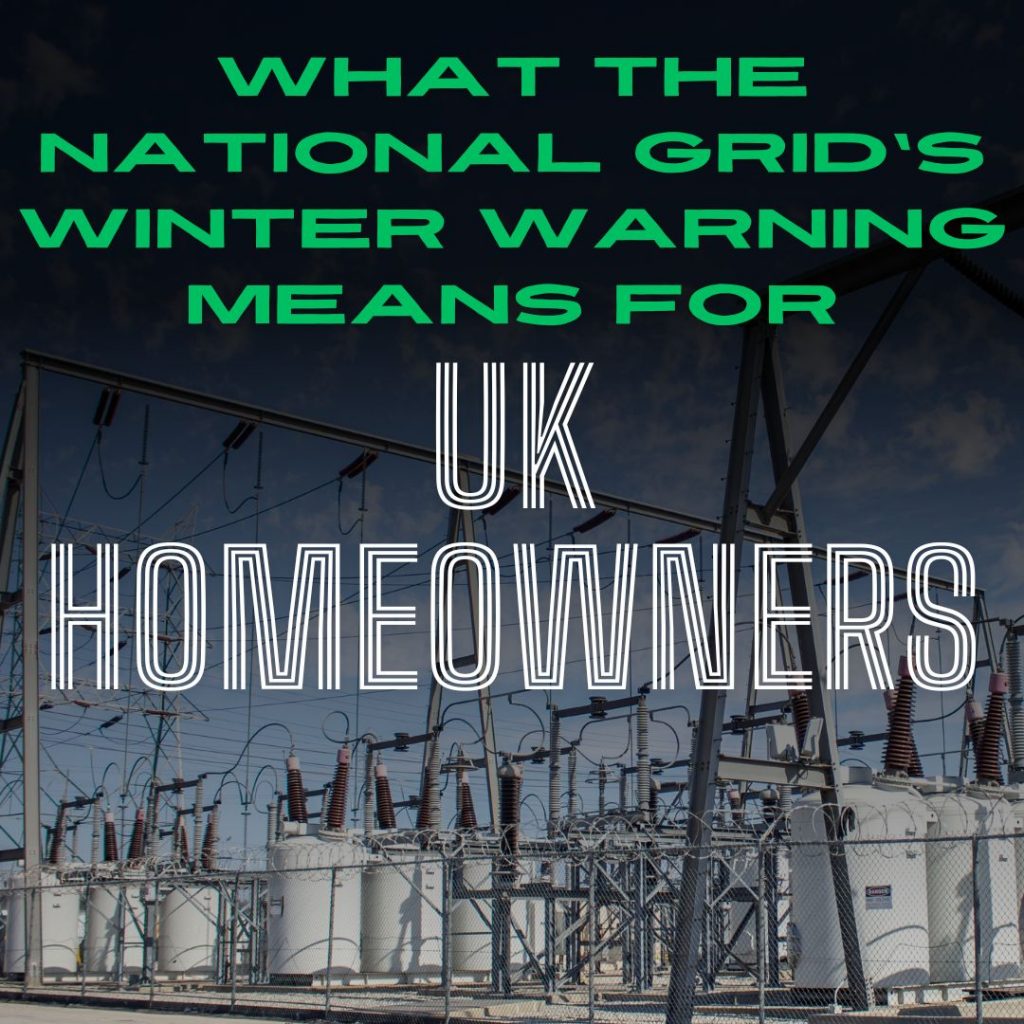Each year as the colder months approach, the National Grid issues updates on how well the UK’s energy system can cope with demand. Often referred to as “winter warnings,” these forecasts are designed to prepare households and businesses for the possibility of supply constraints, increased prices, or even the risk of localised blackouts.
For many UK homeowners, these announcements have become a source of worry. With the cost of living already stretched by rising energy bills, the last thing families want is further uncertainty about whether they’ll be able to afford their heating or keep the lights on.
But here’s the good news: technologies like solar panel installation and battery storage are changing the way households interact with energy. By generating and storing their own electricity, homeowners can protect themselves against rising bills and grid instability – while also helping the UK transition to cleaner, greener energy.
Why Does the National Grid Issue Winter Warnings?
The UK electricity system is designed to balance supply and demand in real time. In the summer, when daylight is longer and demand is lower, this balance is relatively easy to achieve. But in winter, demand surges. Here’s why:
- Heating and lighting demand spikes during dark mornings and evenings.
- Gas supply issues in global markets can drive up wholesale electricity prices.
- Colder temperatures mean homes and businesses consume more energy simultaneously.
- Reliance on imports from Europe can be less predictable during periods of high continental demand.

When demand is expected to outpace supply, the National Grid sometimes warns of possible “energy margins.” While outright blackouts are rare, homeowners may face higher bills during peak hours, and in extreme cases, rolling power cuts could be used to balance the system.
The Impact on UK Households
For UK households, these warnings translate into two main problems:
- Higher Energy Prices – Electricity is most expensive when the grid is under pressure, often between 4pm–9pm in winter. For families cooking, watching TV, and heating their homes during this window, bills can soar.
- Reliability Concerns – Even the possibility of blackouts can cause anxiety, particularly for households with children, medical equipment, or home businesses relying on constant power.
This growing uncertainty is one reason why more homeowners are now turning to solar panel installation combined with battery storage to regain control of their energy.
How Solar Panel Installation Helps
Solar panels are one of the most effective ways to reduce dependence on the National Grid. Even in the UK’s winter months, solar panels continue to generate electricity from daylight – not just direct sunshine.
Here are some of the main benefits of professional solar panel installation:
- Cut Your Bills: Every kWh generated on your roof is one you don’t buy from the grid.
- Protect Against Price Hikes: You’re less exposed to fluctuations in wholesale prices.
- Boost Property Value: Homes with solar panels are more attractive to buyers and can achieve a higher EPC rating.
- Lower Carbon Footprint: By generating clean energy, you’re directly reducing your household’s emissions.

Solar panels are no longer a futuristic upgrade – they’re a proven, reliable technology with warranties of 20–30 years. For many UK households, installation pays for itself in just a few years thanks to ongoing savings.
Why Battery Storage Is Essential
Solar panels alone are a strong start. But to get the most value, homeowners are increasingly pairing panels with battery storage systems. Here’s why:
1. Store Energy for the Evening
Most households use the majority of their electricity in the evening. Unfortunately, that’s when the grid is most expensive. With battery storage, energy generated during the day can be stored and used later – reducing your reliance on costly peak-time electricity.
2. Protection Against Power Cuts
While full blackouts remain rare, localised outages can and do happen – especially during cold snaps or storms. A battery storage system allows you to keep essentials like lighting, WiFi routers, and even your boiler controls powered during outages.
3. Take Advantage of Off-Peak Tariffs
Many modern batteries can charge not only from your panels but also from the grid. This means you can buy cheap electricity overnight and use it during expensive peak periods, saving even more.
4. Support Electric Vehicles
With EV ownership growing rapidly, battery storage becomes even more attractive. Your home battery can store solar energy during the day and release it overnight to charge your car, making transport cheaper and greener.

Case Study: A Family’s Energy Independence
Take the example of a typical UK family of four living in a three-bedroom home. Their annual electricity bill averages £1,600. By investing in solar panel installation and a 10kWh battery storage system, they can:
- Generate around 70% of their electricity from their own panels.
- Reduce reliance on peak grid electricity by over 80%.
- Save £700–£1,000 annually on bills.
- Achieve payback on their system in under 7 years.
When the National Grid issues warnings, this family is far less concerned. They know their lights, heating, and appliances will keep running smoothly.
The Bigger Picture: Energy Independence in 2025
The UK government has ambitious targets to decarbonise the electricity system. While large-scale offshore wind and solar farms play a role, decentralised generation, like household solar and storage, is becoming increasingly vital.
By installing panels and batteries, you’re not only protecting your own home but also reducing overall demand on the grid during critical times. Collectively, this helps the entire country avoid shortages and blackouts.
Common Questions Homeowners Ask
 Do solar panels work in winter?
Do solar panels work in winter?
Yes. While output is lower than in summer, panels still generate electricity from daylight. Pairing them with a battery ensures maximum benefit even on shorter days.
 Is battery storage worth the investment?
Is battery storage worth the investment?
Absolutely. Without storage, surplus daytime solar often goes unused. With a battery, every bit of energy is captured and reused – boosting savings and resilience.
 Can batteries power my home during a blackout?
Can batteries power my home during a blackout?
Yes. Many modern systems include backup functionality, meaning your essential appliances can keep running during outages.
 How long do solar panels and batteries last?
How long do solar panels and batteries last?
Solar panels typically come with 25–30 year warranties. Batteries generally last 10–15 years, with most offering at least a decade of guaranteed performance.
Why Homeowners Should Act Before Winter
With each passing year, the cost of energy continues to rise. While wholesale prices may dip temporarily, standing charges and peak rates remain stubbornly high.
By investing in solar panel installation and battery storage now, you can:
- Start saving immediately on your energy bills.
- Lock in long-term protection against future grid price increases.
- Improve your home’s resilience before the coldest months arrive.
Benefit from government incentives and zero VAT on installations.

Conclusion: Turning Warnings Into Opportunities
The National Grid’s winter warning is a clear signal that the UK energy system faces ongoing challenges. For homeowners, it’s also a call to action.
Instead of worrying about whether the grid will cope, you can take charge of your energy future. By investing in solar panel installation and battery storage, you’ll:
- Reduce your bills.
- Protect your home from blackouts.
- Support the UK’s transition to clean energy.
- Enjoy true peace of mind this winter and beyond.
For more information or a quote email us at info@nano-pro.tech, fill in our online form here, or give us a call on 0800 861 1582.

